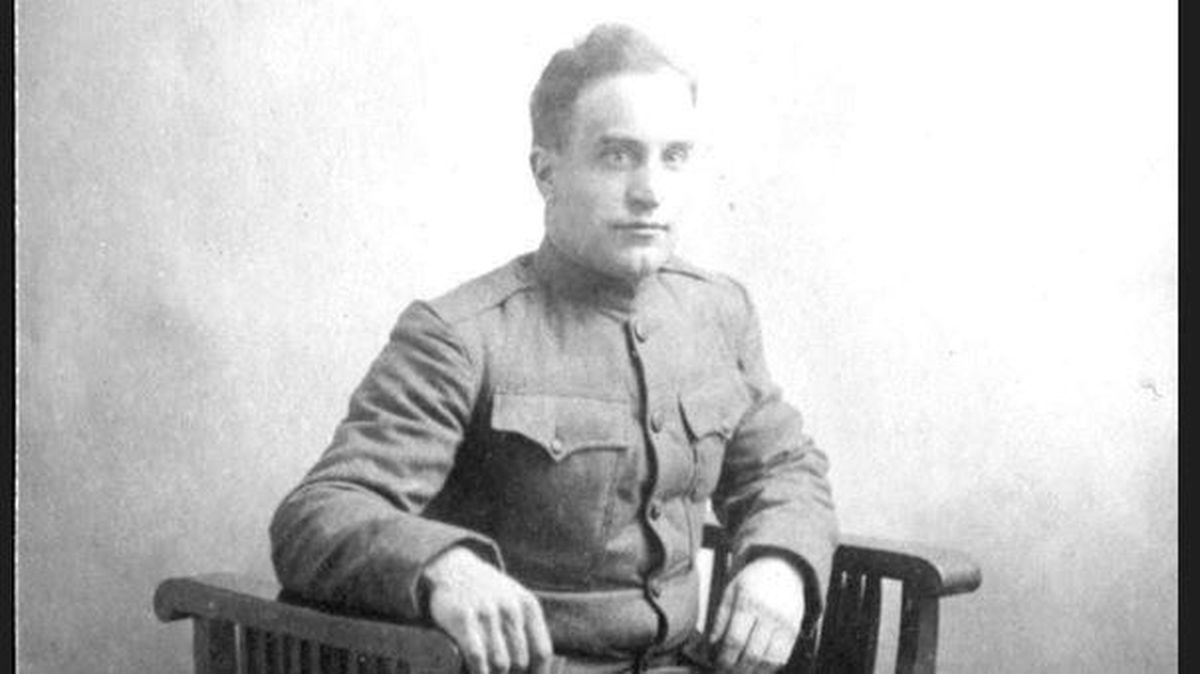In 1919, a Spokane soldier who survived two battle wounds in World War I died in an accident in France. Here’s how his brother was informed of his death

France
Feb. 19, 1919.
Mr. W.H. Austin.
1918 East Boone Ave.
Spokane,
Wash
Dear Sir:
It is with the deepest feelings of sorrow that I report to you the death of your brother Pvt. First Class Samuel F. Austin.
Your brother had been with the Company from the very first and had won a place in the hearts of both officers and men that I have never seen equalled.
He went into the line with us on September 26 in the Argonne Offensive. His conduct was so creditable that he was mentioned in Division orders. On Sept. 29th he was wounded by shrapnel but refused to go to the rear or even to leave his company long enuff to be dressed by a surgeon. On Oct. 3 he was again wounded. this time by an airplane bullet. His wound was so severe that his evacuation was necessary. When he left every man of the Company sent good wishes with him and looked forward to his return.
About two months ago he returned from the hospital and took up his place with the Company in our preparation for returning home. That any accident should befall a man who had been thru’ so much and done so well would seem impossible.
Saturday morning Feb. 15th he reported on sick call. He was not feeling well but the doctor tho’t him not seriously ill. He went back to his billet and felt worse. About the middle of the forenoon he went over to another billet and told Corporal Butterfield there that he was very sick and asked him if there wasn’t some out of the way place he could lie down during inspection.
Corporal Butterfield gave him a blanket and showed him a place in the loft. Austin climbed up the ladder and laid down up there. Corporal Butterfield who was also feeling ill was downstairs. He said it was a half an hour or so when he heard your brother say something, he didn’t catch the words, and looked up to see him toppling off the edge of the loft backwards. Before Butterfield could do or say any thing Austin had fallen head first on the hard floor below, about 12 feet.
Corporal Butterfield layed him on a bed and opened his clothes and ran for the Surgeon who was only a block away. The Doctor went at once and gave every attention possible. As soon as it was possible to move him safely he was taken to the Hospital at CETON in an ambulance where he could be given the very best medical treatment. He died that evening before an operation was possible.
After the accident he regained only partial consciousness and suffered no pain. He was not disfigured. His skull was fractured by the fall and altho he was given the best of treatment it was impossible to save his life.
Every officer and man in the Company was sorrowed with grief. We were able to get trucks enuff to transport all of the old men of the Company to the graveyard about 30 kilometers away, near CETON, where a military funeral was held over his body. Our Chaplain pronounced a service, eight of his Comrades fired the three volleys over his grave and another Comrade blew taps.
His grave is the sixth American Grave in the CETON cemetery and is marked with a wooden cross with his name and identification tag on it.
It was a sad day for us when we left a friend such as Samuel Austin to rest on foreign soil. I am sure that I express the sentiment of this Company when I say that he was an excellent soldier, a perfect gentleman and a true friend.
Please accept this expression of sympathy as a solace in your sorrow.
Sincerely,
Russell Miller
Capt. 347 M.G.Bn. (Machine Gun Battalion)
Am.E.F.A.P.O. 776 (American Expeditionary Force Army Post Office Box 776)
This letter is on file at the Ned M. Barnes Northwest Room of the Spokane Public Library.